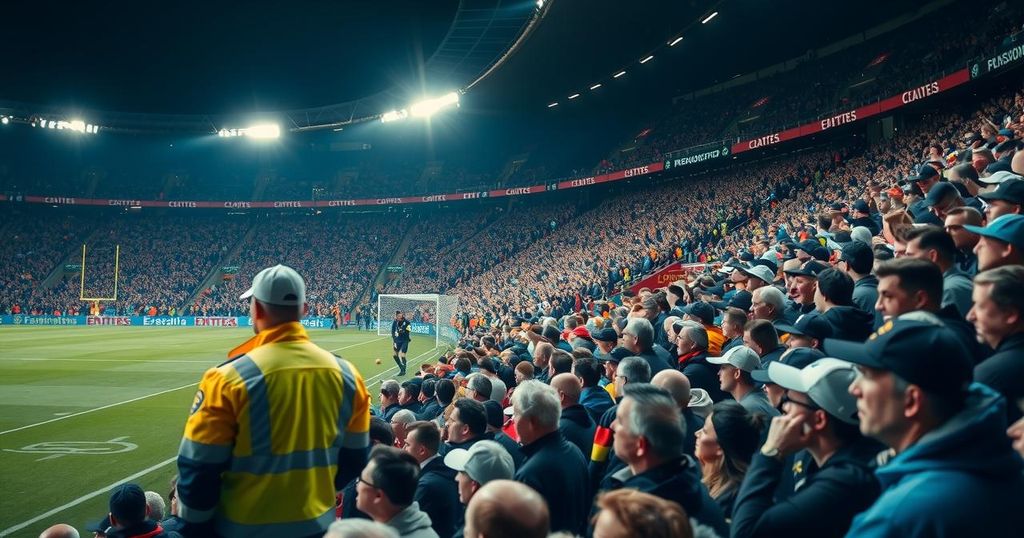Tragedy Strikes N’zérékoré Football Match: Dozens Killed in Stadium Crush

Dozens of individuals have reportedly died due to a crush during a football match in N’zérékoré, Guinea, following violent clashes among fans and police intervention. Prime Minister Mamadou Oury Bah has called for calm as authorities manage the situation and provide aid to the injured. The incident underscores significant concerns regarding crowd control and safety in Guinean sporting events, echoing past tragedies in the country.
A tragic incident occurred during a football match in N’zérékoré, Guinea, where a deadly crush led to numerous fatalities. Reports indicate that the chaos erupted after tensions escalated when fans of the visiting team, Labé, expressed their discontent towards the referee’s decisions. Tear gas was reportedly deployed by the police in an attempt to control the situation. Prime Minister Mamadou Oury Bah has acknowledged the situation and called for calm, while regional authorities strive to restore order. Witness accounts reflect the overwhelming panic that ensued, with many attempting to escape the horrific scene where bodies were later found at local medical facilities.
As the match between N’zérékoré and Labé unfolded, local media describe how the atmosphere turned volatile after a controversial referee call. This incident is particularly alarming given the historical context of stadium violence in Guinea, most notably the 2009 massacre. Authorities have yet to provide a confirmed number of casualties, while local hospitals report an influx of the injured. The situation has drawn nationwide attention, with citizens and officials alike calling for a thorough investigation into the events that transpired and measures to ensure the safety of sports events in the future.
The tragic event underlines the importance of crowd control and safety measures during public gatherings, particularly at sporting events, where emotions can run high. With thousands in attendance during such matches, the outbreak of violence reminds the nation of its dark past involving stadium disasters. The government’s response to manage the aftermath and prevent future incidents will be crucial in restoring public trust in the safety of such entertainment events.
In conclusion, the recent crush at the football match in Guinea marks a heart-wrenching event that has claimed the lives of many, with authorities now working to understand and manage the repercussions. The incident not only reflects ongoing tensions within the country but also propels a discussion surrounding security measures at large gatherings. A comprehensive investigation and serious consideration of preventive measures are paramount to avoid any repetition of history.
The football match incident in N’zérékoré, Guinea, serves as a reminder of the historical patterns of violence during sporting events in the country. The recent stampede occurred during a tournament honoring President Mamadi Doumbouya’s government, amidst lingering divisions within Guinean society following past aggressive military actions, particularly the horrific events of 2009. The previous incident involved a deadly assault on a peaceful gathering where security forces responded with extreme violence, resulting in numerous casualties and other atrocities. While Guineans came together for sport, the underlying tensions manifesting in violence echo the need for thorough approaches to crowd safety and management in the context of public events.
In summary, the tragic crush at the N’zérékoré football match highlights an urgent need for enhanced safety protocols during sporting events. Following historical violence in stadiums, including the notorious 2009 massacre, the latest incident calls for a critical review of existing measures to ensure crowd safety. Prime Minister Mamadou Oury Bah’s appeal for calm is a reflection of the government’s duty to address such calamities seriously, leading to better safeguards in the future for all participating in public gatherings.
Original Source: www.bbc.com







